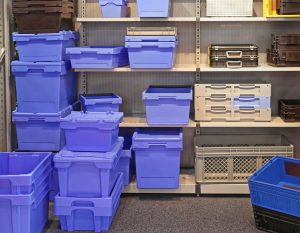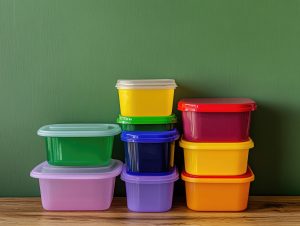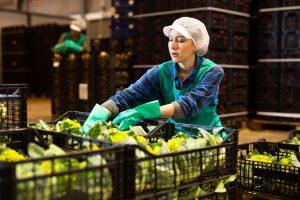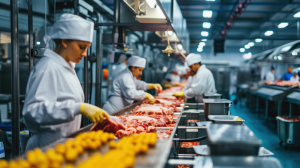Meeting food safety standards is vital for businesses in the food processing industry to ensure that consumers are protected from unwanted bacteria growth and that the business’s reputation is upheld.
One of the main ways this can be achieved is by controlling the functionality of the operations, ensuring a well-maintained environment and an efficient end-to-end process. Our plastic storage containers can be the solid solution for your needs to ensure your food safety is high regardless of the long, complex and ever-changing food processing demands.
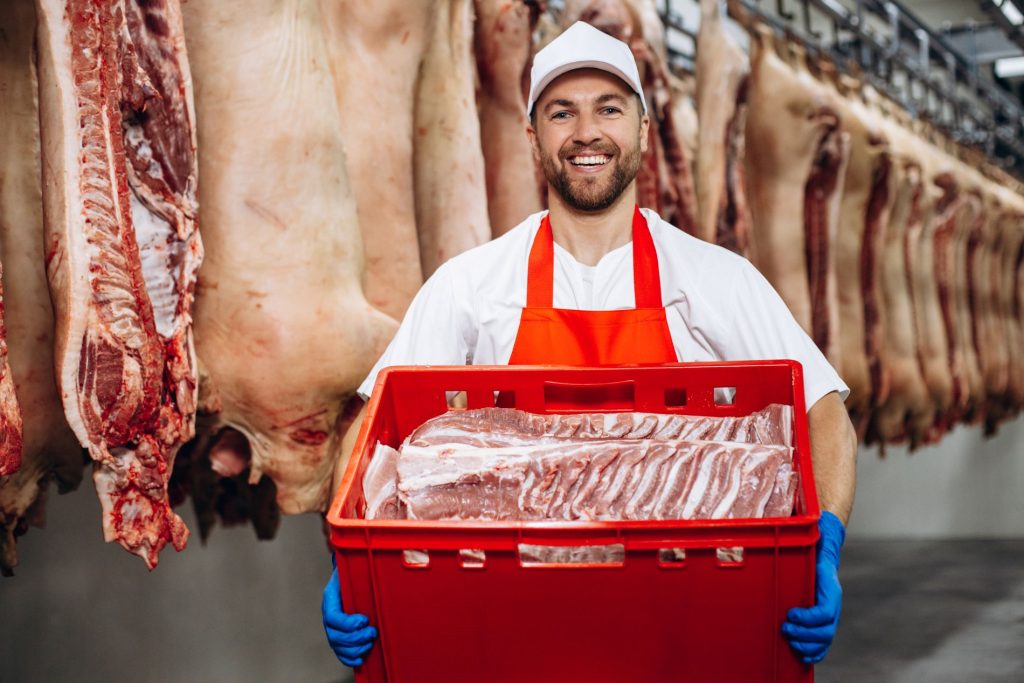
Why proper storage and handling are important for maintaining hygiene and efficiency
Proper storage and handling can make sure your hygiene is efficient with your food processing workflow. There are several stages when it comes to food processing and it involves a variety of steps that can change depending on the type of food being processed.
Dealing with raw meat, for example, will mean stricter and safer processes to ensure that no cross-contamination occurs. Fruits and vegetables will require thorough washing and proper storage to extend freshness and prevent spoiling.
In general, the food processing steps include:
1. Cleaning and sorting
This is one of the most vital steps in food processing as cleaning produce before it’s sorted can be the difference between food spoiling or being fresh. In combination with sorting, this will enable you to keep produce fresh, sorted and ready for the next step.
2. Peeling, cutting and trimming
Food typically needs to go through a quality assessment before it hits the shelves and supermarkets have requirements that need to be met to make sure that the consumer's quality is protected. However, recent developments in supermarkets now also encourage the sale of wonky or imperfect fruit and vegetables to reduce waste and make fresh produce more affordable.
3. Blanching or pre-treatment
This is serialising and giving treatment to produce that makes it safe for consumption and slows down the spoiling of fruit and vegetables.
4. Cooking
Many foods undergo cooking to make sure all harmful microorganisms are destroyed in the baking stages, they can alter textures and enhance flavours. This is vastly important to help get the food to the desired profile and includes boiling, frying, steaming, grilling or roasting.
5. Mixing and blending
Ingredients are mixed together to create the desired consistency and flavour for a number of cooking methods. They include sauces, baked goods, or processed meats.
6. Pasteurisation or sterilisation
This is where food is treated with heat to make sure bacteria are killed and produce is safe for consumption. This will help extend the shelf life and reduce the amount of food wasted as it can destroy microorganisms.
7. Dehydration, freezing or preservation
Removing the moisture from foods can help prolong their shelf life drastically as water retention typically causes foods to spoil and freezing foods that are highly perishable will help maintain their freshness by pausing the ageing process. Preservation is common for canned food which is sealed and undergoes heat treatment to make sure bacteria is killed and cannot grow.
8. Packaging
Processed foods are packaged in anything from cans and jars to vacuum-sealed plastics to protect them from contamination in transportation or storage.
9. Labelling
Labels are key to making sure food is processed correctly and the consumer knows what they are purchasing. This should include the product name, expiry dates, storage instructions, nutrition, allergy and marketing information.
10. Quality control
Through all of these processes, there is quality control that needs to be undertaken to ensure that safety standards are met and that there is consistency and adherence to food regulations.
11. Storage and distribution
This can vary from produce but these guidelines help ensure that food standards are met at the correct times. Whether this includes refrigeration, frozen or fresh distribution, retailers and consumers must make sure food is protected from contamination when being moved.

The importance of food-safe storage
Why food-safe materials are crucial for food processing
Transferring bacteria can be a huge risk in food processing and that is why it’s crucial to make sure you get the correct containers to look after your produce from start to end. All our food processing products are made from food-grade polypropylene which makes it first in class at delivering hygienic standards.
Why should you use different colours for food processing?
Colour-coded food storage is critical when it comes to sorting produce clearly and efficiently i.e. organising produce in categories such as gluten-free, vegan, vegetarian, nut-free and many more. This is a great way to keep produce separated so that you can provide the quality that your consumers demand.
Alison Handling stocks a wide range of food-safe storage containers in an array of colours to ensure you can keep on top of your organisation.
Key features of food-safe containers (e.g., durability, cleanliness, recyclability)
The key features of our containers are that they are highly durable and will be easy to clean for years to come. They have solid walls and rounded corners which makes it easy to apply soap and water to flush out any dirty or unwanted bacteria.
We stock perforated containers too, which makes cleaning a bit easier for produce that needs sterile containers. Meat and vegetables can come under regulations that can slow down your food processing line. As meat can spoil quickly and needs to be kept at a certain temperature, it’s important to comply with the standards and make sure correct drainage occurs in transport once they get defrosted.
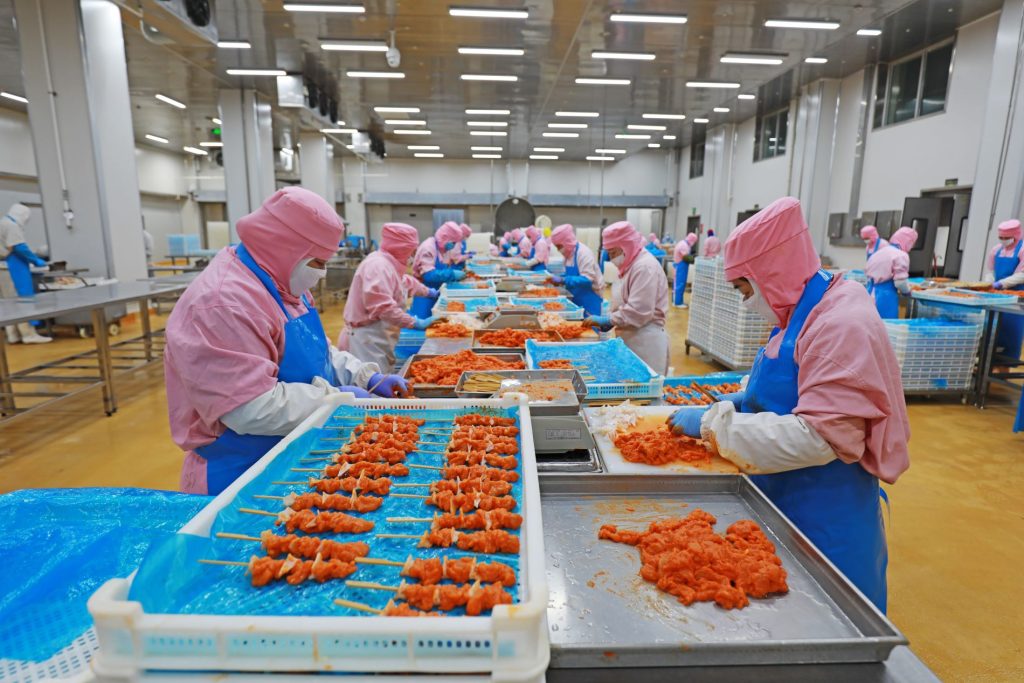
The food-safe storage we can supply
Euro Stacking Containers: Ideal for hygienic and stackable food storage.
Our Euro stacking boxes are the ideal solution for efficient distribution across different channels. They embody strength and cleanliness and come in a variety of sizes which makes them ideal for a variety of industries. Their versatility is perfect for those who need to streamline getting produce from point A to point B as they fit exactly on plastic pallets without wasting any space.
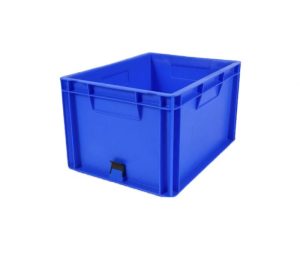
Plastic Lidded Storage Boxes: Perfect for secure and clean ingredient storage.
Our plastic-lidded storage boxes are great for storing your ingredients in an air-tight location that will preserve freshness while they are in transportation or storage for long periods of time.
We offer the lids separately if you already have the containers that fit, this way you don't have to invest extra money into other containers. This makes for a seamless system so you can push your workflow forward into an efficient system that doesn't break under high demands.
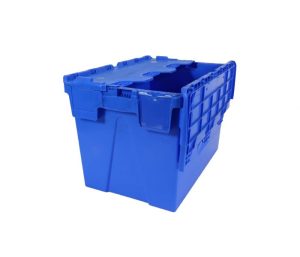
Saeplast Insulated Containers: Excellent for temperature-sensitive food items.
Saeplast containers are the pinnacle of dual-walled containers as they can protect meat, fish, vegetables and other produce that is sensitive to drastic temperature changes.
They feature material properties that can keep your produce protected in long-haul fishing trips and make sure that the quality is preserved. They are built from environmentally friendly materials that allow for a variety of sizes in your food process.
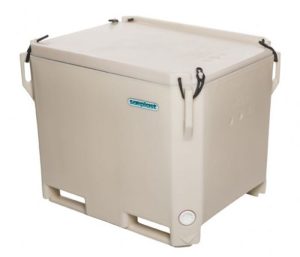
Plastic Mobile Container Trucks: Easy transportation of bulk food materials.
When it comes to moving your plastic containers around the factory floor, if not done properly this can put your employees at risk and open your business up to potential lawsuits or more. This is where our plastic mobile container trucks come into action so you can sit the container on top and move them around on their smooth castors with ease.
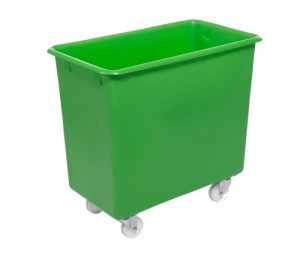
Benefits of using these products in food processing
How they help streamline operations, ensure hygiene, and enhance productivity.
Food processing products are ideal for streamlining operations as they are custom-built for a variety of industry needs. They also uphold strong hygiene standards with solid and easy-to-clean walls, which will in turn enhance the productivity of your operations. We understand that buying brand-new products isn't always the best option for companies, however, we recommend it in the food industry as it ensures food-grade polypropylene is being used.
Common practices for those who are keeping up with food hygiene standards are the 5 C’s - Cook, Clean, Cross-contaminate, Chill and Check. This is a great way to keep food at the correct temperature and make sure food times are executed correctly.
Our plastic storage containers are industry-leading and will enable you to keep your food processing moving forward in an efficient way. Browse our food production catalogue to find out more about how our products can help you, or get in touch with us to make an enquiry.

